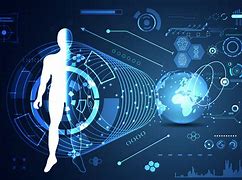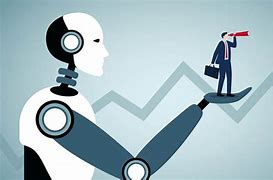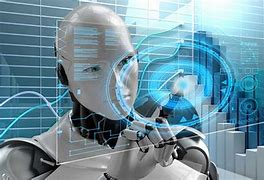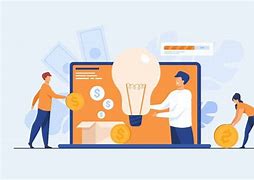
The world of work is rapidly evolving, and artificial intelligence (AI) is at the heart of this transformation. AI tools are no longer confined to the realm of science fiction; they’re here, impacting industries and job dynamics in unprecedented ways. From automating mundane tasks to generating creative content, AI is changing how we work, what skills are in demand, and even the nature of jobs themselves. But, what does this mean for the future of work? Will AI replace humans altogether, or will it open up new opportunities? The answer, as with most complex questions, lies somewhere in between.
AI is poised to disrupt traditional work models in profound ways. Think about it this way: Imagine a world where routine tasks like data entry and scheduling are handled automatically by AI assistants, freeing up human employees to focus on more strategic, creative, and complex work. This is not a distant future fantasy; it’s a reality taking shape right now in numerous workplaces. But, this shift isn’t happening without challenges. The integration of AI into the workplace necessitates a reskilling of the workforce. The need for individuals to adapt to new technologies, develop their skills in areas like data analysis, critical thinking, and problem-solving, is paramount for survival in the AI-driven job market. So, what are the practical implications of these trends for individuals, organizations, and society as a whole? Let’s delve deeper into the evolving dynamics between humans and AI in the world of work.
Remember this, AI is a tool, a powerful one at that, but a tool nonetheless. It’s our responsibility to wield it wisely, ethically, and strategically to create a future of work that is not only more productive, but also more equitable and fulfilling for all.
The Future of Work: How AI Tools Are Changing Job Dynamics
Related Post : Trending Now: Apps Set to Transform Your Travel Experience
The world of work is undergoing a dramatic transformation, driven by the rapid advancements in Artificial Intelligence (AI). AI tools are no longer confined to science fiction; they are actively reshaping job dynamics across industries, automating tasks, augmenting human capabilities, and creating entirely new opportunities. This article explores the rise of AI in the workplace, its impact on job dynamics, and the skills needed to thrive in this evolving landscape.
The Rise of AI in the Workplace
What is AI and How Does it Work?
AI refers to computer systems designed to mimic human intelligence, allowing them to learn, reason, and solve problems. These systems are trained on massive datasets, enabling them to determine patterns, make predictions, and even generate creative outputs. AI tools utilize various techniques, including machine learning, deep learning, and natural language processing, to perform complex tasks.
Examples of AI Tools
AI has infiltrated various industries, revolutionizing how businesses operate. Examples include:
- Customer service chatbots: These AI-powered chatbots offer instant assistance to customers, answering queries and resolving issues 24/7.
- Image recognition software: Used in healthcare for medical imaging examination, in retail for product tagging, and in security for facial recognition.
- Predictive analytics: Employed in finance to forecast industry trends, in industrying to personalize customer experiences, and in logistics to maximize provide chain operations.
The Potential of AI to Automate and Improve Efficiency
AI’s ability to automate repetitive and mundane tasks has the potential to significantly improve efficiency. By complimentarying up human workers from these tasks, AI empowers them to focus on more strategic and creative endeavors. This shift towards automation can boost productivity, reduce costs, and enable companies to deliver products and services more effectively.
The Impact of AI on Job Dynamics
Humans and AI: A Collaborative Future
AI is not replacing humans; it is augmenting human capabilities. The future of work involves a collaborative partnership between humans and AI, where AI tools assist humans in performing tasks more efficiently and effectively. This partnership can lead to:
- boostd productivity: AI can handle routine tasks, allowing humans to focus on higher-value work that requires creativity, critical thinking, and problem-solving skills.
- Innovation: AI can analyze vast amounts of data, determine trends, and generate insights that can drive innovation and create new opportunities.
Shifting From Repetitive Tasks to Cognitive Work
AI’s ability to automate repetitive tasks will lead to a shift towards functions that require higher-level cognitive skills, such as critical thinking, problem-solving, and creativity. This will require individuals to continuously develop their skills and adapt to the evolving job industry.
AI Transforming varied Industries
AI in Manufacturing and Production
AI is transforming manufacturing processes, enabling companies to:
- Streamline production: AI algorithms maximize resource allocation, minimize waste, and enhance efficiency.
- Predictive maintenance: AI tools analyze sensor data to determine potential equipment failures, minimizing downtime and ensuring smooth operations.
The impact on job functions is complex, with potential for both displacement and new opportunities. Some traditional manufacturing functions may be automated, while new functions in AI development, maintenance, and data examination will emerge.
AI in Healthcare
AI is revolutionizing healthcare by:
- Assisting with diagnosis: AI-powered tools analyze medical images and patient data to assist doctors in making accurate diagnoses.
- Treatment planning: AI algorithms can develop personalized treatment plans based on individual patient data, improving outcomes.
- Drug discovery: AI is accelerating drug discovery by analyzing vast databases to determine potential drug candidates.
Ethical considerations are crucial in healthcare, ensuring that AI systems are used responsibly and fairly.
AI in Finance
AI is transforming financial services by:
- Automation: AI automates tasks such as trade execution, risk assessment, and customer service, increasing efficiency and reducing costs.
- Fraud detection: AI algorithms analyze transaction data to determine fraudulent activities, protecting financial institutions and customers.
- Personalized financial advice: AI-powered robo-advisors offer customized financial advice based on individual needs and risk tolerance.
The function of traditional financial advisors is evolving, with AI tools taking over some of their responsibilities. However, human advisors remain crucial for providing personalized guidance and complex financial planning.
The Future of Work: Preparing for the AI Revolution
Skills Needed to Thrive in the AI-Driven Workforce
To succeed in the AI-driven future of work, individuals need to develop a set of skills that complement AI capabilities:
- Critical thinking: The ability to analyze information, determine biases, and make informed decisions.
- Creativity: The capacity to generate new ideas, solve problems in innovative ways, and adapt to changing circumstances.
- Adaptability: The willingness to learn new skills and embrace technological advancements.
- Collaboration: The ability to work effectively with others, both human and AI colleagues.
Continuous Learning and Upskilling
The AI revolution demands a commitment to continuous learning and upskilling. Individuals need to stay informed about emerging technologies and proactively develop the skills needed to thrive in the evolving job industry.
Ethical Considerations of AI in the Workplace
As AI becomes increasingly integrated into the workplace, it is crucial to address ethical considerations:
- Bias in algorithms: AI systems can inherit biases from the data they are trained on, potentially leading to unfair or discriminatory outcomes.
- Privacy concerns: AI tools can collect and analyze vast amounts of personal data, raising concerns about privacy and data security.
Responsible AI Development and Deployment
To mitigate these risks, it is essential to prioritize responsible AI development and deployment:
- Human oversight: AI systems should be developed and deployed with human oversight to ensure ethical and responsible use.
- Ethical frameworks: Clear ethical frameworks need to be established to guide the development and deployment of AI in the workplace.
Preparing for the Future of Work: Education and Training
To equip individuals with the skills they need to thrive in the AI-driven workforce, it is crucial to invest in education and training:
- Government and business initiatives: Governments and businesses should invest in programs that offer access to skills development opportunities, particularly in areas related to AI, data science, and digital literacy.
- Lifelong learning: Individuals should embrace a culture of lifelong learning, continuously updating their skills to stay ahead of technological advancements.
Conclusion
The AI revolution is reshaping the future of work, creating both challenges and opportunities. While AI tools have the potential to automate tasks and boost productivity, they also demand a shift in skills and a focus on human capabilities that complement AI. By embracing technological advancements while remaining mindful of ethical considerations, individuals can prepare for a future where collaboration between humans and AI drives innovation and prosperity.



